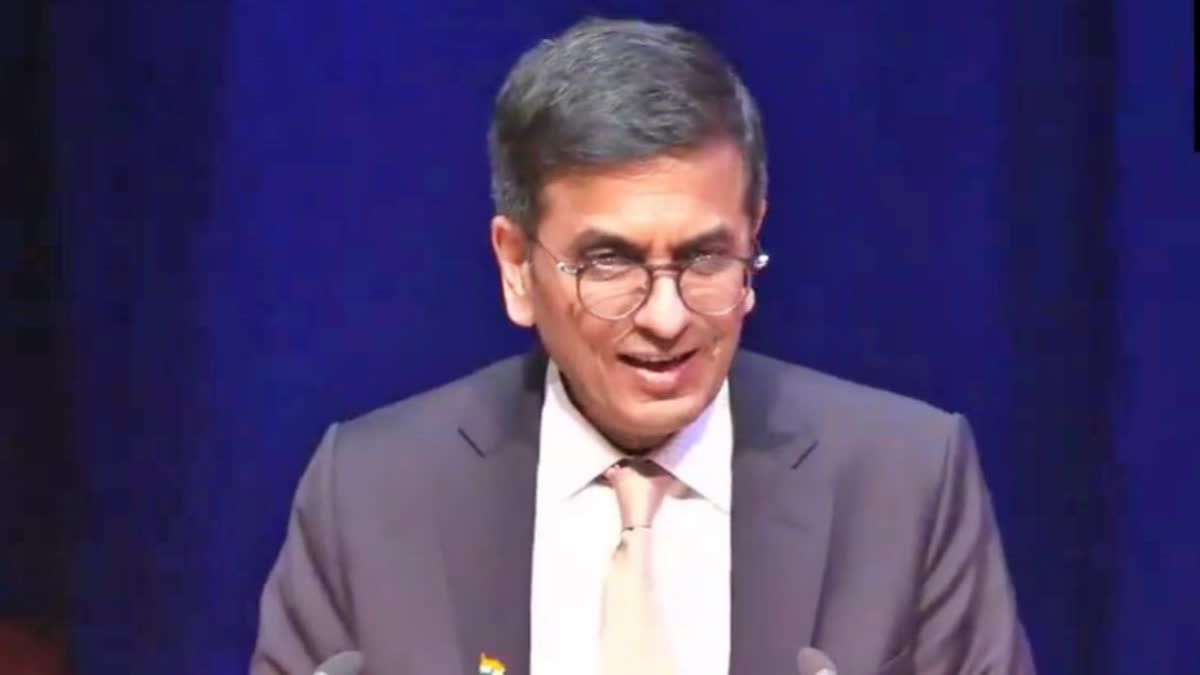New Delhi: The ultimate test of a moral person is their willingness to raise a voice for justice even when it means rocking the boat, said Chief Justice of India D Y Chandrachud on Thursday while praising eminent jurist Fali S Nariman. Speaking at a full-court reference held at the Supreme Court in honour of Nariman, who passed away on February 21, the CJI said his mental agility, dedication to work and commitment to the law remained uncompromised till the day he finally rested.
"The ultimate test of a moral person is their willingness to raise a voice for justice even when it means rocking the boat, and Mr Nariman was always willing to speak for what was right and just," the CJI said. Chandrachud said Nariman's life and career before our courts lived up to the highest ideals of the legal profession.
"No matter the client, the government or the case, Mr Nariman sought to advance a vision of the law grounded in liberty, equality and justice, the foundational values of our Constitution and ultimately, our society. No matter the occasion or the opponent, he conducted himself with grace and poise," he said.
The CJI said with the imposition of the Internal Emergency in June 1975, Nariman resigned as additional solicitor general. "However, his continued accomplishments at the Supreme Court are a testament not only to his enduring legal prowess that saw him through turbulent times, but also to that finest tradition of the Bar in rising above the disagreements of the day to unfailingly serve their clients, assist the Court and work towards our nation's betterment," he said.
Chandrachud said Nariman always recognised that his highest duty was to the court and the Constitution despite appearing for countless clients of various backgrounds and creeds. Nariman, a doyen of Indian judiciary, was part of several landmark legal proceedings that helped shape modern India, including the Kesavanand Bharati case in which the Supreme Court laid down the basic structure doctrine.
Nariman, 95, was born into a well-to-do Parsi family on January 10, 1929 in Rangoon, now Yangon, in Myanmar. His family fled to India during the Japanese invasion when he was only 12. Nariman enrolled as an advocate of the Bombay High Court in November 1950 and was designated a senior advocate in 1961.
He practised law for more than 70 years, initially at the Bombay High Court, and since 1972, in the Supreme Court. Nariman was appointed as the additional solicitor general of India in May 1972. He resigned from the post a day after the imposition of Emergency on June 26, 1975.
In his long and illustrious career, Nariman argued in several landmark cases, including the Bhopal gas tragedy case, TMA Pai case (rights of minorities to establish and administer educational institutions), J Jayalalithaa's disproportionate assets case and the case involving the National Judicial Appointments Commission, which was struck down by the Supreme Court.
Nariman, who was often referred to as the "Bhishma Pitamah" of the Indian judiciary, authored books including "Before the Memory Fades", "The State of the Nation", "India's Legal System: Can it be Saved?" and "God Save the Hon'ble Supreme Court". He received the Padma Bhushan in 1991 and the Padma Vibhushan, the country's second highest civilian honour, in 2007. He was nominated as a member of the Rajya Sabha in November 1999.



